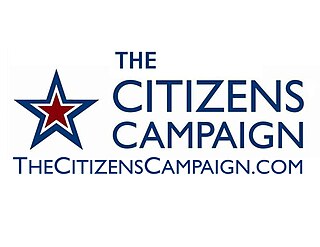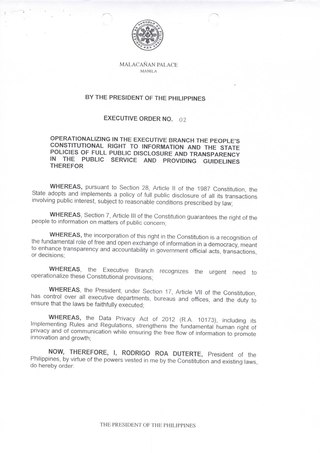Related Research Articles
Freedom of information laws allow access by the general public to data held by national governments and, where applicable, by state and local governments. The emergence of freedom of information legislation was a response to increasing dissatisfaction with the secrecy surrounding government policy development and decision making. In recent years Access to Information Act has also been used. They establish a "right-to-know" legal process by which requests may be made for government-held information, to be received freely or at minimal cost, barring standard exceptions. Also variously referred to as open records, or sunshine laws, governments are typically bound by a duty to publish and promote openness. In many countries there are constitutional guarantees for the right of access to information, but these are usually unused if specific support legislation does not exist. Additionally, the United Nations Sustainable Development Goal 16 has a target to ensure public access to information and the protection of fundamental freedoms as a means to ensure accountable, inclusive and just institutions.
Same-sex marriage in New Jersey has been legally recognized since October 21, 2013, the effective date of a trial court ruling invalidating New Jersey's restriction of marriage to persons of different sexes. In September 2013, Mary C. Jacobson, Assignment Judge of the Mercer Vicinage of the Superior Court, ruled that as a result of the U.S. Supreme Court's June 2013 decision in United States v. Windsor, the Constitution of New Jersey requires the state to recognize same-sex marriages. The Windsor decision held that the federal government was required to provide the same benefits to same-sex couples who were married under state law as to other married couples. Therefore, the state court reasoned in Garden State Equality v. Dow that, because same-sex couples in New Jersey were limited to civil unions, which are not recognized as marriages under federal law, the state must permit civil marriage for same-sex couples. This ruling, in turn, relied on the 2006 decision of the New Jersey Supreme Court in Lewis v. Harris that the state was constitutionally required to afford the rights and benefits of marriage to same-sex couples. The Supreme Court had ordered the New Jersey Legislature to correct the constitutional violation, by permitting either same-sex marriage or civil unions with all the rights and benefits of marriage, within 180 days. In response, the Legislature passed a bill to legalize civil unions on December 21, 2006, which became effective on February 19, 2007.
Public records are documents or pieces of information that are not considered confidential and generally pertain to the conduct of government.
Louis Manzo is an American Democratic Party politician who served in the New Jersey General Assembly from 2004 to 2008, where he represented the 31st legislative district, and who ran unsuccessfully for Mayor of Jersey City, New Jersey.

The New Jersey Department of Education administers state and federal aid programs affecting more than 1.4 million public and non-public elementary and secondary school children in the state of New Jersey. The department is headquartered in the Judge Robert L. Carter Building in Trenton.
Stuart Jeff Rabner is the chief justice of the New Jersey Supreme Court. He served as New Jersey Attorney General, Chief Counsel to Governor Jon Corzine, and as a federal prosecutor at the U.S. Attorney's Office for the District of New Jersey.

Christopher James Christie is an American politician, lawyer, political commentator, lobbyist, and former federal prosecutor who served as the 55th governor of New Jersey from 2010 to 2018.

The 2009 New Jersey gubernatorial election took place on November 3, 2009. Incumbent Democratic Governor Jon Corzine ran for a second term against Republican Chris Christie, Independent Christopher Daggett, and nine others, in addition to several write-in candidates. Christie won the election, with about 48.5 percent of the vote, to 44.9 percent for Corzine and 5.8 percent for Daggett. He assumed office on January 19, 2010. This was the first election to fill the newly created office of lieutenant governor, with the candidates for governor choosing their running mates. Kim Guadagno, Christie's running mate, became New Jersey's first lieutenant governor following her inauguration.

Lesbian, gay, bisexual, and transgender (LGBT) persons in New Jersey have most of the same rights as non-LGBT people. LGBT persons in New Jersey enjoy strong protections from discrimination, and have had the right to marry since October 21, 2013.

The New Jersey Society for the Prevention of Cruelty to Animals is a law enforcement agency in the state of New Jersey that focuses on humane law enforcement. The agency enforces animal-related laws and investigates cases of animal cruelty. In January 2018, Governor Chris Christie signed a bill intended to dissolve the organization and transfer animal cruelty law enforcement to county prosecutors, municipalities, and county SPCA agencies. The NJSPCA will cease law enforcement operations by August 1, 2018. The agency was disbanded in 2018 after a State Commission of Investigation Reports (SCI) showed that the agency could not account for over 700K in Attorney fees, mismanaged bank accounts, and businesses created by its Board Members. The agency was virtually bankrupt at the time it was disbanded due to a lack of oversight. The NJSPCA was sued in 2015 under the Open Public Record Act in which it spent 140K on Attorney's fee's. It was order on 4 separate occasions that they were a Government Agency and subject to OPRA. See Sci Report https://www.nj.gov/sci/pdf/SPCA-FollowUpReport.pdf

The Citizens Campaign is a non-profit, nonpartisan organization based in Metuchen, New Jersey. It aims to provide US citizens with tools and training for effecting political change in their community. The group was founded by Harry and Caroline Pozycki in 1998, and draws support from experts in law, government, and politics including former New Jersey Supreme Court Justice Gary Stein, Dean of the Annenberg School of Communications at the University of Pennsylvania Michael Delli Carpini, and former Counsels to Governor Tom Kean and Brendan Byrne, among others.

Chris Christie took office as the 55th Governor of New Jersey on January 19, 2010, and began his second term on January 21, 2014, and left office on January 16, 2018.

Gun laws in New Jersey regulate the sale, possession, and use of firearms and ammunition in the U.S. state of New Jersey. New Jersey's firearms laws are among the most restrictive in the country.
Garden State Equality v. Dow, 82 A. 3d 336 is a New Jersey Superior Court case holding that New Jersey's marriage laws violated the rights of same-sex couples to equal protection of the law under the New Jersey State Constitution. The ruling was issued on September 27, 2013. The Superior Court and the Superior Court, Appellate Division refused the State's request for a stay of the trial court's order, and the New Jersey Supreme Court refused to do so on a 7-0 vote. The ruling took effect on October 21, 2013. On the same day, New Jersey Governor Chris Christie dropped the State's plans to appeal, ending the denial of marriage rights to same-sex couples in New Jersey.

The Fort Lee lane closure scandal, also known as the George Washington Bridge lane closure scandal or Bridgegate, was a political scandal involving a staff member and political appointees of New Jersey Governor Chris Christie colluding to create traffic jams in Fort Lee, New Jersey, by closing lanes at the main toll plaza for the upper level of the George Washington Bridge.
Bridget Anne Kelly is the former deputy chief of staff to the Governor of New Jersey, Chris Christie, known for her participation in the Bridgegate scandal.

Philippine President Rodrigo Duterte signed Executive Order No. 02, also known as the Freedom of Information (FOI) Program, on July 23, 2016, in Davao City. The executive order established the first freedom of information (FOI) Program in the Philippines covering all government offices under the Executive Branch. It requires all executive departments, agencies, bureaus, and offices to disclose public records, contracts, transactions, and any information requested by a member of the public, except for matters affecting national security and other information that falls under the inventory of exceptions issued by Executive Secretary Salvador Medialdea. The landmark order was signed two days before Duterte delivered his first State of the Nation Address and just three weeks after he assumed the presidency on June 30, 2016.

Cannabis in New Jersey is legal for both medical use and recreational use. An amendment to the state constitution legalizing cannabis became effective on January 1, 2021, and enabling legislation and related bills were signed into law by governor Phil Murphy on February 22, 2021.

The Illinois Freedom of Information Act, 5 ILCS 140/1 et seq., is an Illinois statute that grants to all persons the right to copy and inspect public records in the state. The law applies to executive and legislative bodies of state government, units of local government, and other entities defined as "public bodies". All records related to governmental business are presumed to be open for inspection by the public, except for information specifically exempted from disclosure by law. The statute is modeled after the federal Freedom of Information Act and serves a similar purpose as freedom of information legislation in the other U.S. states.

The Illinois Public Access Counselor (PAC) is an attorney in the office of the Illinois Attorney General who is responsible for enforcing the state's Freedom of Information Act (FOIA) and Open Meetings Act (OMA). The PAC is the head of the Public Access Bureau, a group of more than one dozen attorneys who process complaints against public bodies and provide education to the public on Illinois' transparency laws.
References
- ↑ "2013 New Jersey Revised Statutes :: Title 47 - PUBLIC RECORDS :: Section 47:1A-1 - Legislative findings, declarations".
- ↑ "NJ Department of Law & Public Safety - OPRA Information".
- 1 2 Hernandez, Joe. "Appealing a public records request denial in N.J.? Don't hold your breath". WHYY. Retrieved 31 May 2018.
- ↑ http://www.state.nj.us/turnpike/documents/OPRA.pdf [ bare URL PDF ]
- ↑ "Open Public Records Act".
- 1 2 Sullivan, S.P. (25 May 2018). "Chris Christie left office and took control of his old e-mails with him". NJ.com. Retrieved 31 May 2018.
- ↑ Perez, Andrew (25 May 2018). "Chris Christie blocks release of his office's emails with Jared Kushner's company". Fast Company. Retrieved 31 May 2018.